第11章 CHAPTER I(10)
If this little incident justifies me in drawing a general conclusion, I should say that exposure to extreme cold is an almost painless form of death; but that the process of being resuscitated is very painful indeed--so painful, that the patient may be excused for momentarily regretting that officious people prevented the temporary insensibility from becoming "the sleep that knows no waking."
Between the alternate reigns of winter and summer there is always a short interregnum, during which travelling in Russia by road is almost impossible. Woe to the ill-fated mortal who has to make a long road-journey immediately after the winter snow has melted; or, worse still, at the beginning of winter, when the autumn mud has been petrified by the frost, and not yet levelled by the snow!
At all seasons the monotony of a journey is pretty sure to be broken by little unforeseen episodes of a more or less disagreeable kind. An axle breaks, or a wheel comes off, or there is a difficulty in procuring horses. As an illustration of the graver episodes which may occur, I shall make here a quotation from my note-book:
Early in the morning we arrived at Maikop, a small town commanding the entrance to one of the valleys which run up towards the main range of the Caucasus. On alighting at the post-station, we at once ordered horses for the next stage, and received the laconic reply, "There are no horses."
"And when will there be some?"
"To-morrow!"
This last reply we took for a piece of playful exaggeration, and demanded the book in which, according to law, the departure of horses is duly inscribed, and from which it is easy to calculate when the first team should be ready to start. A short calculation proved that we ought to get horses by four o'clock in the afternoon, so we showed the station-keeper various documents signed by the Minister of the Interior and other influential personages, and advised him to avoid all contravention of the postal regulations.
These documents, which proved that we enjoyed the special protection of the authorities, had generally been of great service to us in our dealings with rascally station-keepers; but this station-keeper was not one of the ordinary type. He was a Cossack, of herculean proportions, with a bullet-shaped head, short-cropped bristly hair, shaggy eyebrows, an enormous pendent moustache, a defiant air, and a peculiar expression of countenance which plainly indicated "an ugly customer." Though it was still early in the day, he had evidently already imbibed a considerable quantity of alcohol, and his whole demeanour showed clearly enough that he was not of those who are "pleasant in their liquor." After glancing superciliously at the documents, as if to intimate he could read them were he so disposed, he threw them down on the table, and, thrusting his gigantic paws into his capacious trouser-pockets, remarked slowly and decisively, in something deeper than a double-
bass voice, "You'll have horses to-morrow morning."
Wishing to avoid a quarrel we tried to hire horses in the village, and when our efforts in that direction proved fruitless, we applied to the head of the rural police. He came and used all his influence with the refractory station-keeper, but in vain.